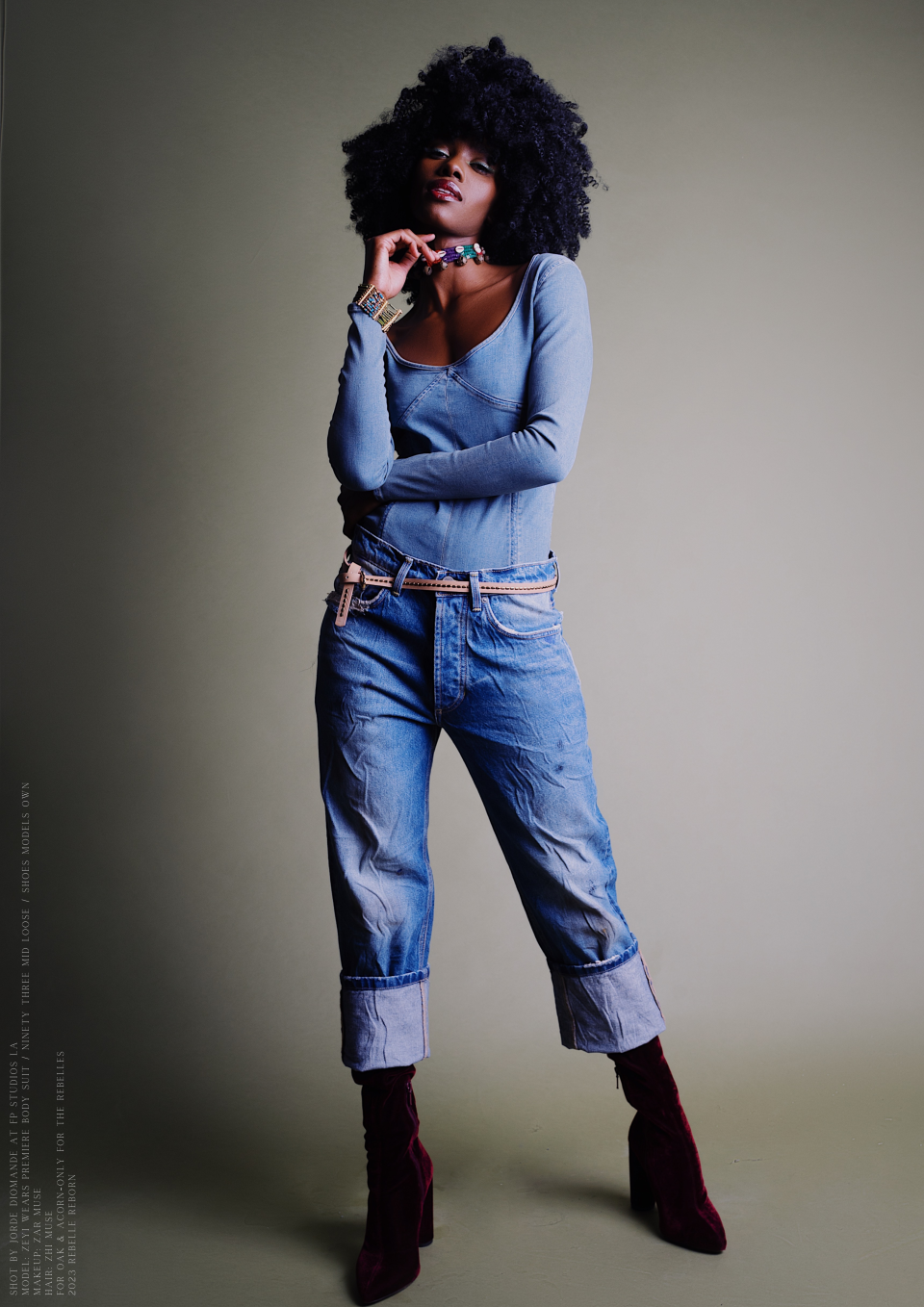Black in Fashion Council designers pay homage to diaspora with crochet, structured tops and denim
NEW YORK — African, Caribbean and Black American magic resided on the fifth-floor showroom at Spring Studios during New York Fashion Week.
Black in Fashion Council designers JEOFROI, Ellaé Lisqué, Madamette, TORLOWEI, Made By Ciriaco, Oak & Acorn, CISE, Sincerely Ria and Diotima sold opulence and visualized the importance of drawing back to your community with their collections.
Many of the designers paid homage to their origins and the struggles faced across the diaspora to get recognition in the fashion industry.
Here's a look at some of the brands and what they are doing in the design space.
Diotima shares 'new vision'
Diotima was created "with the intent to present a new vision of Caribbean style — one that's not nostalgic, but that is rooted in the craft that's made in Jamaica specifically and the rest of the Caribbean — and present it in a luxury setting," designer Rachel Scott says as Mr. Fingers' house beat "Mystery of Love" plays in the background.
Best photos from New York Fashion Week 2023: See the NYFW runway looks, all the celebs
New York aside, Milan, London and Paris have been the epicenter of fashion in today's world. Diotima's goal since its creation in 2021 is to "decenter the notion that luxury only comes from Europe."
With all the brand's crochet coming from Jamaica and "a very strong dance hall influence," the garments open the door to seeing what the modern Caribbean has to offer. It's not just cruises. The intricacy in the mesh and crochet designs makes you want to settle into the sun and then head to a dimly lit bar in the evening wear pieces.
JEOFROI shares wearable, upscale fashion
In contrast to Diotima, JEOFROI presents luxury as over-the-top glam with sash feathers acting as the hem to garments, boleros with full-length gloves and fun structured tops. The collection is bringing back the drama in fashion, something founders Jeff Taylor and Roy Carey-Ware say they haven't seen in the industry in a few years.
"We specialized in prêt-à-couture, which is a combination of prêt-à-porter and couture," Carey-Ware says. The ready-to-wear is upscaled by "adding different finishings to elevate the garment in a couture way."
Madonna's daughter Lourdes Leon, Julia Fox hit hellish runway for Valentine's Day show
If you're paying a high cost for couture, you should be able to wear an item frequently, JEOFROI founders stress. That's the reason the designers "love to offer separates for evening." Carey-Ware points out that the structured satin tops could be paired with jeans for the daytime or a matching skirt for a glamorous night out.
Oak & Acorn, TOROLOWEI, CISE are giving back
Oak & Acorn designer Miko Underwood is deconstructing the politics around fabrics and materials that are often credited to apparel brands created by white founders.
"We pay homage to the untold legacy of Black, Indigenous and enslaved Africans' contributions to denim," Underwood says. "Denim didn't start with Levis or Wrangler — it started on the plantations of the American South. Denim was first regarded as a uniform for the enslaved populations and deemed unfit for anyone else to wear."
The Harlem-based brand sees denim as "a social, cultural and political icon throughout American history," which is further evident with the slave trade origins behind indigo. Indigenous people from Africa, the Caribbean and the Americas "understood how to use indigo for a medicinal purpose but also understood it in textile," Underwood says.

Alexander Wang leads with love for first NYC fashion show post-sexual assault scandal
Oak & Acorn isn't just honoring the past. Through purchase of their coveralls, "one of the first staple uniforms of the American farmer, the enslaved worker and the prisoner," the brand gives 20% of its proceeds to their social impact partner We Got Us Now, Inc. The non-profit bipartisan company provides support to children and young adults impacted by parental incarceration.
Giving back to the community seems to be in the fabric of Black creators. Nigerian-based lounge and lingerie company TOROLOWEI partners with charities to help at-risk individuals and also provides young girls access to safe, reusable and hygienic sanitary products to fight period poverty. CISE, known for their "Protect Black Women" bags donated over $43,000 to "organizations and businesses that support the Black community."
Black in Fashion Council designers all share the common thread of strengthening the diaspora – whether it's through activism, imploring sustainable practices, empowerment from wardrobe or simply existing in the white-dominated space of fashion. It's what makes you smile by the time you exit the fifth-floor IMG showroom.
Sergio Hudson: Kimora Lee Simmons cheers on lookalike daughter Aoki walking in NYFW show
This article originally appeared on USA TODAY: Black designers at fashion week show luxury, pay homage to diaspora

